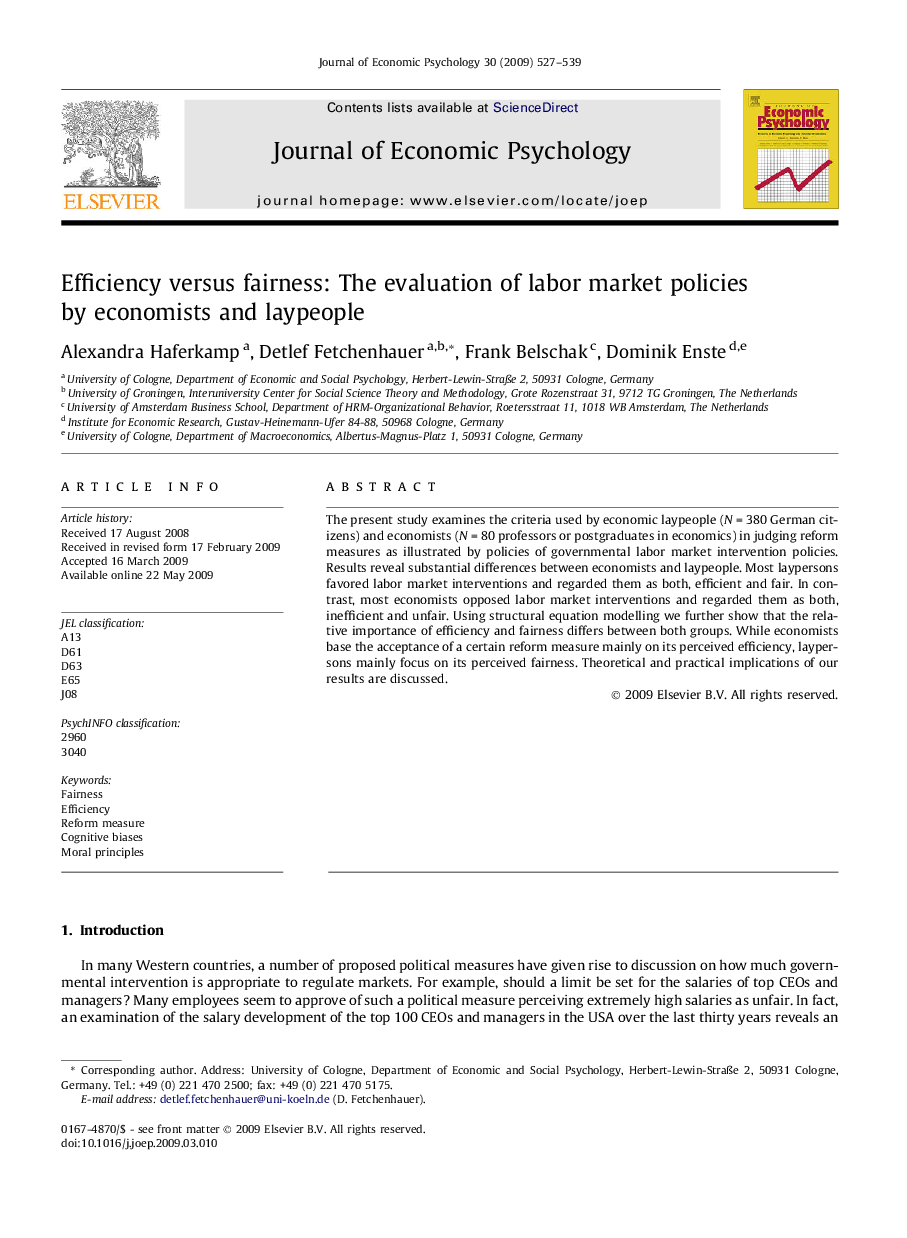| Article ID | Journal | Published Year | Pages | File Type |
|---|---|---|---|---|
| 885407 | Journal of Economic Psychology | 2009 | 13 Pages |
The present study examines the criteria used by economic laypeople (N = 380 German citizens) and economists (N = 80 professors or postgraduates in economics) in judging reform measures as illustrated by policies of governmental labor market intervention policies. Results reveal substantial differences between economists and laypeople. Most laypersons favored labor market interventions and regarded them as both, efficient and fair. In contrast, most economists opposed labor market interventions and regarded them as both, inefficient and unfair. Using structural equation modelling we further show that the relative importance of efficiency and fairness differs between both groups. While economists base the acceptance of a certain reform measure mainly on its perceived efficiency, laypersons mainly focus on its perceived fairness. Theoretical and practical implications of our results are discussed.
